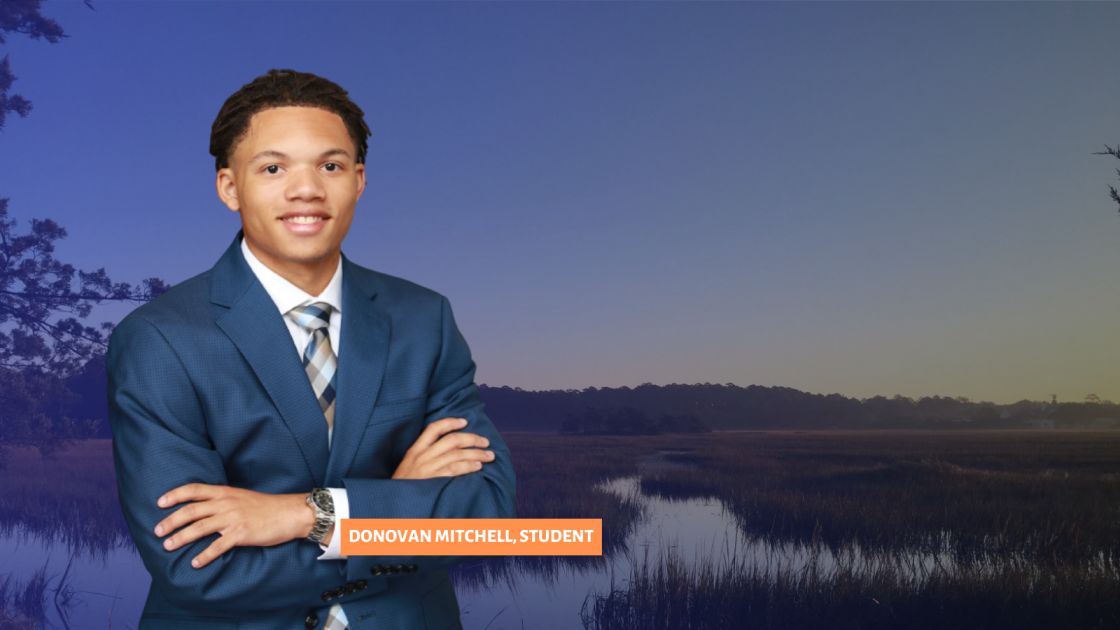Undergraduate student Donovan Mitchell can trace the genesis of his goal to earn a doctorate degree in marine sciences to his visits as a child to the Georgia Aquarium.
“I saw what the ocean was really about, and their message about education, and I always admired that.”
As a fourth-year marine science student at the University of Florida and a member of the Angelini Lab, Mitchell is now studying ribbed mussels and their influence on coastal water quality, in collaboration with UF Ph.D. student Sydney Williams and Dr. Nikki Dix, Director of the Guana Tolomato Matanzas (GTM) Natural Estuarine Research Reserve.

Mussels, by filtering tiny particles from tide waters, can consume large quantities of microscopic algae, or phytoplankton, thereby helping regulate the amounts of algae in coastal waters. Changes in algal biomass serve as indicators of the health of an ecosystem, and Mitchell and co-researchers are looking at how mussels affect the quantity and composition of algae in the water.
Mitchell and the research team measured chlorophyll-a, an indicator of phytoplankton biomass, in experimental plots located in marsh areas with and without mussels over a high tide at sites in Sapelo Island, Georgia and St. Augustine, Florida. They discovered that mussels rapidly clear algae from tide waters through their filter feeding activities across all three sites, which varied considerably in water quality with Sapelo Island being relatively pristine while the St. Augustine site, which is located near a wastewater treatment plant, is known to support higher nutrient and algae loads. Their experiment provided evidence that mussels can powerfully and efficiently ‘clean’ coastal waters across a range of conditions. The next steps are to use a FlowCam, a microscopic image recognition system, to assess specific species of algae and use this information to identify which species mussels are most and least effective at filtering from coastal waters.
Through this work, Donovan and his collaborators aim to better understand how mussels affect coastal water quality and use this information to both motivate and guide the management and restoration of coastal wetlands, including salt marshes and mangrove forests, that support mussel populations.
During his two years in the Angelini lab, Mitchell has gained valuable project management experience, from field work to setting up experiments and handling logistics.
As for the future, Mitchell, a McNair scholar, plans to enroll in a Naval Meteorology and Oceanography program in addition to pursuing a master’s and doctoral studies.
“I’ve always been passionate about the ocean,” said Mitchell. “It’s important as ever to be in this field and combat some of the issues that are happening and create new solutions for the future.”
—
By Megan Sam
